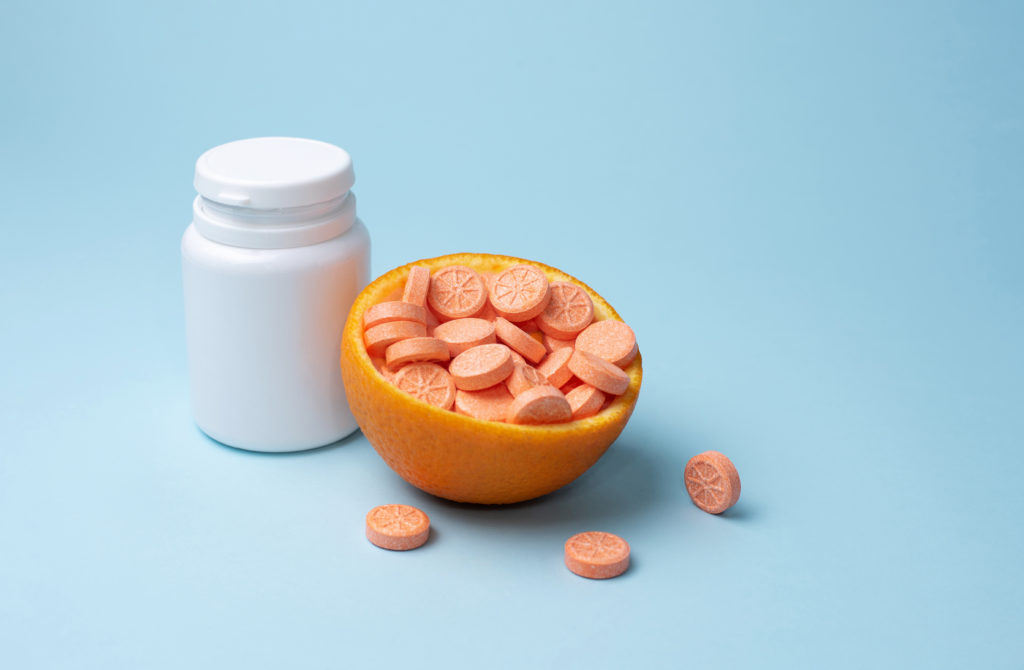Vitamin D is essential for many reasons. Although the body produces when exposed to sunlight, people can also boost their Vitamin D intake by eating it in specific foods or supplements. However, there are two types of Vitamin D—D2 and D3. Both are forms of Vitamin D but from different sources.
Vitamin D2, also called ergocalciferol, comes from plants such as mushrooms grown in UV light, fortified foods, and dietary supplements. Meanwhile, D3 or cholecalciferol comes from animal-sourced foods such as oily fish, fish oil, liver, egg yolk, butter, and nutritional supplements. Between the two forms of Vitamin D, D2 is much cheaper to produce than D3, so it’s more common in fortified foods.
On the other hand, D3 is formed in our skin. Our body naturally produces D3 when it’s exposed to sunlight. The ultraviolet B (UVB) radiation from sunlight triggers Vitamin D3 from the compound 7-dehydrocholesterol in the skin. By regularly exposing your skin outdoors during safe times, you may be able to get all the Vitamin D your body needs. However, for countries farther from the equator, people might need to stay under the sun more to achieve the same results people living near the equator experience.
What is Vitamin D For?
Vitamin D plays multiple roles in the body. Aside from making bones and teeth stronger, it also supports immune, brain, and nervous system health. It also helps in regulating insulin levels and supporting diabetes management. It also assists in lung function and cardiovascular health while influencing the expression of genes involved in cancer development.
Link Between Vitamin D and Immune System Health
History points to the use of Vitamin D to treat infections, such as Tuberculosis, before the advent of what we know as antibiotics today. In a study, patients with a lung infection were sent to sanatoriums. One of the treatments included exposure to sunlight which was thought to kill the microbes causing the disease directly. Cod oil, a rich source of Vitamin D, was also utilized as a treatment for Tuberculosis and means for generally increased protection from infections.
However, as of writing, administering Vitamin D to decrease infections has not been consistent due to several concerns. But in a recent study, a therapeutic dose of Vitamin D showed a statistically significant decrease in influenza infections—as high as 42 percent dip.
Meanwhile, increasing evidence links Vitamin D deficiency to autoimmune diseases such as multiple sclerosis, rheumatoid arthritis, diabetes mellitus, inflammatory bowel disease, and systematic lupus erythematosus.
In a more recent case, a patient hospitalized with Covid-19 who had sufficient levels of Vitamin D had a decreased risk for adverse outcomes and death. Vitamin D is known to enhance the function of immune cells, including T-cells and macrophages that protect our bodies against pathogens.
Conclusion
The only difference between Vitamin D2 and D3 is their sources. However, most of the time, D2 is more commonly found in food supplements and fortified foods. Meanwhile, D3 is mainly prescribed by doctors as a treatment for various health conditions, such as rickets, hypoparathyroidism, and familial hypophosphatemia. If you’re planning on supplementing your body with Vitamin D, it’s better to consult with your doctor or a health professional. But if you can source it directly by getting sun exposure every day (and in your diet), do that instead.
123Immunity believes our immune system can do much more than what it offers. Through supplementation, we may unlock more possibilities for a better immune system boost and protection. Take immune system boosters today and live a more secure life tomorrow. Visit our website to learn more.



